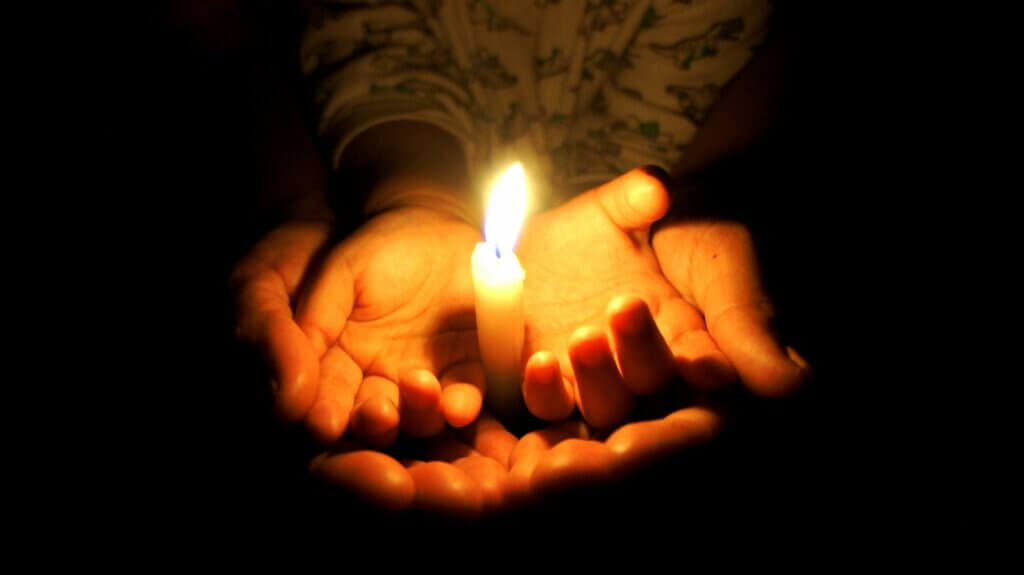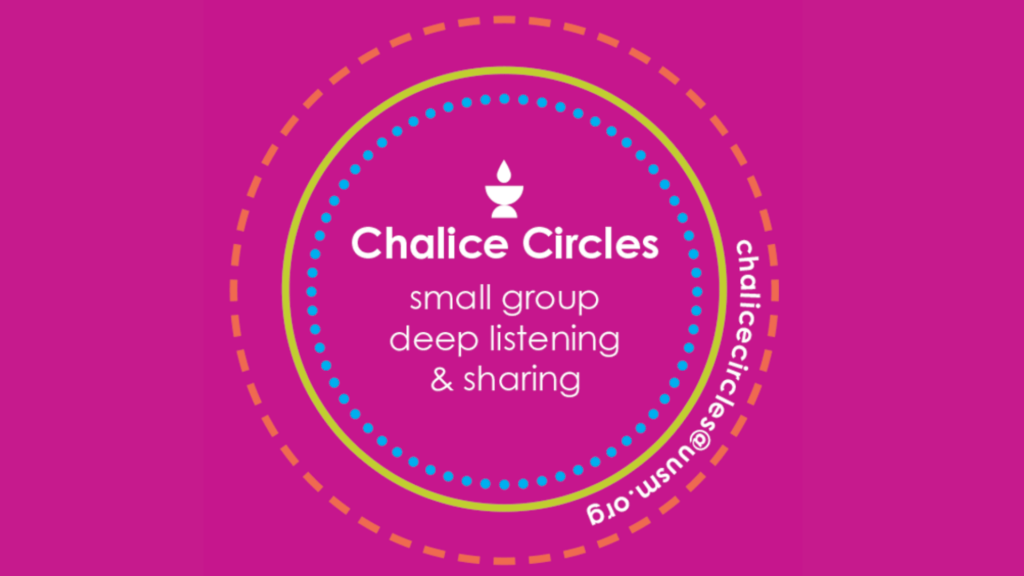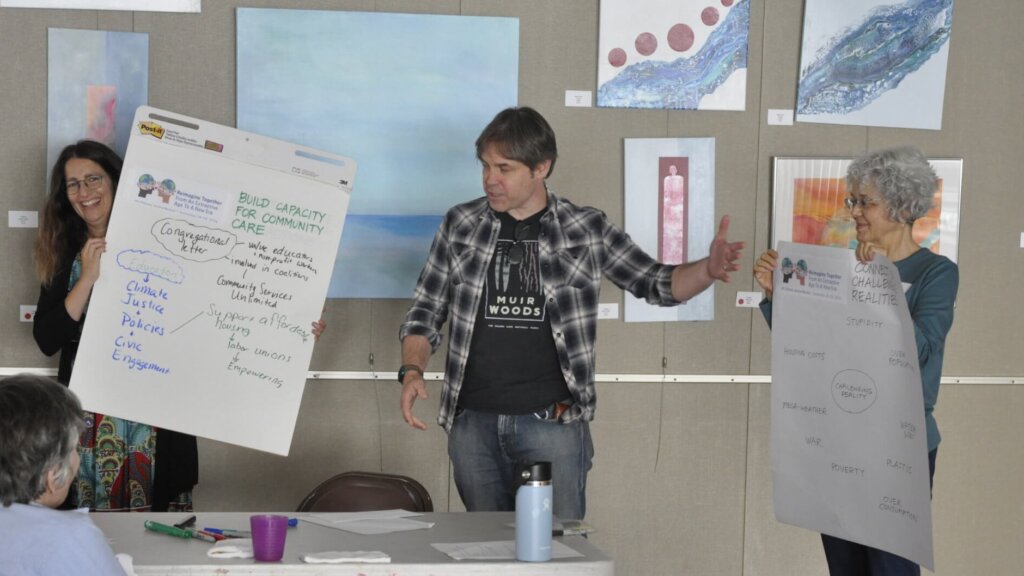 Dear Friends,
Dear Friends,
My religion is a good memory. And it’s come to me, a bit at a time. Scraps of synaptic data carefully culled together. There is an art to it that I admire. I liken a good memory to what painters or sculptors, or musicians or gardeners try to do: be as true as they can to the medium in which they’re working. Like artists, I want to work with what I’ve got and capture it honestly. If it’s bad, then paint it to look bad. If it’s confusing or chaotic or romantic or selfish or exciting or sublime, give it that shape by fitting together the parts strewn along the path I’ve taken. Do it in a way that others – years from now – will know my life in all its nuance and complexity. And when I compose the soundtrack, make sure it has whatever soul-stirring melody as well as that dissonant screaming solo. If it still puts a lump in my throat or opens my eyes in the middle of a dream, I want to make sure that’s the way I write it in the score. I believe if I want anyone to truly know and fully appreciate me, or – more importantly – accept, love and respect me, then I need the integrity to make sure my memory is photographically accurate. I hope they’ll see that I tried to turn the picture and get multiple frames of reference as I went.
I’ve discovered that having a good memory is not convenient. Or comfortable. And where, in the past, I’ve failed to be careful carrying out attention to detail, I was often left with random images and fragments that had lost sequence with my other memories. The parts that don’t integrate – where edges don’t match, or the terrain goes from rough to smooth too easily and characters appear or disappear without explanation – these things bother a good memory.
When I was a little boy, I put comfort in charge of my memory. It wasn’t until years later, with hindsight, I figured out this was a mistake. Comfort only liked to save the bits where I looked good: where I was handed the trophy in Little League, or received mentions in the school paper, or the got all As on report cards. The problem with this turned out to be that all my report cards were just clips and fragments because I had clipped out all the parts in the commentary, the re-marks under the ‘high-marks’, where my teacher wondered why I talked so much during lessons or could never remember my homework.
The hardest thing about putting comfort in charge was all the things it couldn’t explain. I didn’t realize until later that Trauma and Shame had keys to the room where my memories were stored. They left things, often just by painting them on the walls (so they couldn’t be removed). At the time I chalked it up to vandalism. Those things were so out of place! They weren’t me! What I failed to account for was how compulsive and round the clock comfort was working to hide or bury anything that disagreed with its editorial content. Comfort often posted and ‘liked’ submissions of food, and it put out countless calls for content to run like advertisements. It especially sought episodes of reckless adventure. Or manufactured intimacy (a cheap knock-off of Love) which I began to feel obliged to provide.
When there weren’t enough comfort-approved entries in my memory to cover things left by trauma or shame, a group was formed called the Perfection Committee. Their job was to denounce anything submitted by anyone other than comfort. And a consortium was created from two partners – Addictions Inc. – which organized stealthy, impulsive expeditions to pursue pleasure and comfort, and Confabulation Enterprises, whose job it was to dress up ordinary and mundane entries to look better than they were. Unfortunately, the work of the Consortium wasn’t careful and kept getting reported to Wasted Time Management, a division of Self-Loathing.
Eventually, a very expensive team was brought in called Worth and Dignity Unlimited. They insisted on going through everything ever submitted to memory. They dug out things that had been mislabeled, had never been filed, or simply weren’t remembered correctly. They studied every single submission with the goal of not filing it until it was fully understood, accepted, and appreciated. After a few years working with them, they provided integrity. All the rough edges started to fit together. Fewer and fewer gaps or discrepancies appeared and a useful map began to come into view.
The Dali Lama says his religion is kindness. We’re on the same page because I believe a good memory IS kindness. At least, integrity is an indispensable step toward it, because in order to reveal kindness around us, we need to feel it within us. Who we are and what we know becomes what we show and what we do. If we lie to ourselves, we lie to others. But we can never really fool anyone.
What we’re seeing all around our culture, with claims of “fake news”, compiling contradictions, and playing fast and loose with facts, is simply a failure to integrate our internal reality with the world around us. It is the result of having our own memory managed in chaotic fashion, which leads to a surplus of internal loathing that breaks all containment and spills out in a flood of loathing unto the world.
I like this quote in our hymnal by Thoreau. I especially like substituting the word “truth” for “life”.
“I did not wish to live what was not [truth], living is so dear; nor did I wish to practice resignation, unless it was quite necessary. I wanted to live deep and suck out all the marrow of [truth], to live so… as to put to rout all that was not [truth], to cut a broad swath and shave close, to drive [truth] into a corner, and reduce it to its lowest terms, and, if it proved to be mean, why then to get the whole and genuine meanness of it, and publish its meanness to the world; or if it were sublime, to know it by experience, and be able to give a true account of it in my next excursion.”
I call us all to the religion of kindness and integrity – of making truth from our life, because that is what religion asks us to do. It asks us to see that it is not always comfortable. Turning trauma and shame into something we can accept and appreciate requires the transformative power of love, and it requires the amazing company of people who know it is not addiction or confabulation that make life what we want. It is acceptance, understanding, and the truth of our word and deed. When we do this in our memory, then what comes from our lives will always lead us with integrity.
To the Glory of Life.




